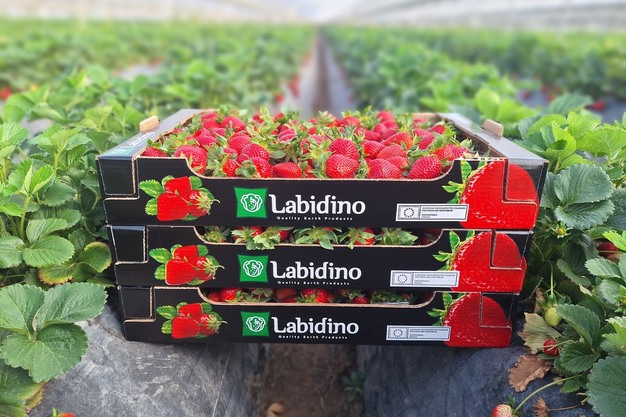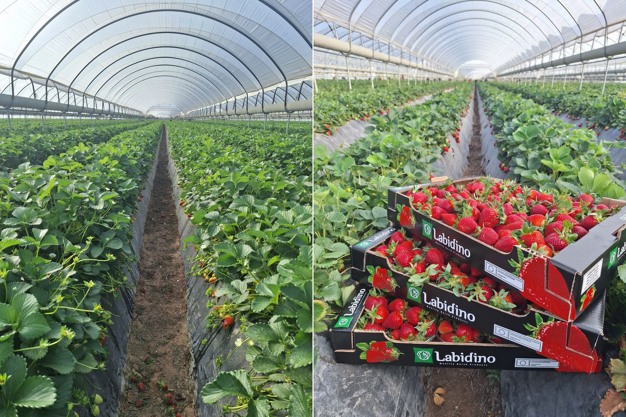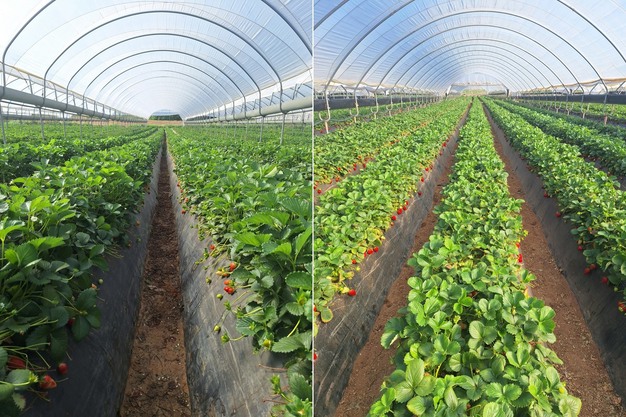The strawberry season in Greece has been more positive than that of the previous year, says Alexandros Polydoropoulos, agronomist of Greek strawberry exporter Labidino SA: "The Greek strawberry season run is quite satisfying. The demand is higher than last year, and the whole strawberry sector in Greece is developing. The quality is also clearly better than it was in 2022-23, and we are happy that the complaints from our clients are really limited. So, both factors helped us achieve good prices in the early part of season. The demand now is really high, everybody is looking for Greek strawberries. However, the supply is not sufficient to cover the needs of the market. Apart from that, the Greek strawberries seem to have their own share of the market in European countries, and they have already gained the appreciation of consumers."

Despite higher acreage, overall strawberry volumes are lower this year, Polydoropoulos explains. "Volumes seem to be decreased, they are approximately 15% lower compared to last year's quantities. The most important factor contributing to this is the lower productivity of the trimmed plants. Furthermore, the bad establishment at the beginning of the season and the mild, dry winter later did not help the plants to set the conditions for the productivity that we would normally expect. This decline is probably not as visible in the market because the strawberry acreage has increased up to 10 to 15% compared to last year."
According to Polydoropoulos, the major issue has been getting the labor to work in the strawberry fields: "The sector has to deal with three really demanding challenges at this point: the lack of labor force, the quality of the propagating material and of course the climate change. Regarding the labor force, we try to call on workers from abroad, countries such as Egypt, India, Nepal, and others, as the work in strawberry fields is not attractive for the native people in Greece. We also face serious problems with the quality of the young plants from the nurseries. The establishment of the plants has become worse through the years and the mortality of the young plants become higher at the first weeks after transplanting. This is something we haven't had to deal with in the past few years. For that reason we try to choose resistant and robust varieties with high adjustability to our cultivation system."

"Climate change, particularly the increase of the average temperature and the lower rainfall, directly affects the strawberry crops. The water availability of the surface and the underground water is limited, and the establishment of the plants at the beginning of the season is further impeded by the high temperatures. We already implement more efficient systems in the use of water and we try to eliminate any malpractice."
The strawberry season started with very strong prices but has since cooled down. However, Polydoropoulos hopes there will be another increase before the season ends: "Our main market is the central and eastern Europe. Currently, we export to Germany, Austria, Poland, Serbia, and Cyprus. We are always open to reaching new markets, and this effort is ongoing. The prices until the first week of March were really satisfying, they were up to 20-25% higher compared to the last season. After that, the price started to fall as more fruit entered the market and now is around 2.2 -2.4 euro /kg. This period, the production usually declines, so our expectation for the prices is to hopefully increase this month and we also hope to keep a good level of trade by the end of the season."

For more information:
Alexandros Polydoropoulos
Labidino SA
Tel.: +302693031800
Mob.: +306984452147
Email: [email protected]
www.labidino.gr
